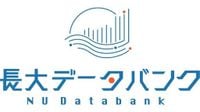In a landmark initiative aimed at enhancing data literacy and addressing social challenges, SAS Institute Japan Co., Ltd. has partnered with Nagasaki University to support the development of human resources in the field of data utilization. This collaboration centers around the "Chodai Data Bank," established in fiscal year 2024, focusing on the cultivation of the next generation of talent in data science and artificial intelligence.
Announced on March 19, 2025, SAS Japan will provide a range of educational resources from its SAS Academic Programs, designed to equip students and professionals with practical skills necessary in today’s data-driven landscape. The necessity for skilled professionals equipped with data utilization capabilities has become increasingly evident, particularly as various industries seek to leverage data analytics for informed decision-making.
The "Chodai Data Bank" is led by Associate Professor Takeshi Kanzaki and Associate Professor Yutaka Ichifuji from the Faculty of Information Data Science at Nagasaki University. The establishment of this data bank is part of a broader strategy to tackle local social challenges, aiming to create an impactful learning environment through practical workshops and courses that impart both knowledge and skills in data analysis.
As Professor Kanzaki noted, “To widely promote the use of data at the community level, it is essential to not only learn skills academically, but also to gain practical learning opportunities through direct experience with real-world examples. Collaborating with SAS's extensive knowledge from various industries will provide invaluable practical learning experiences that cannot be covered solely by the university.” This approach underscores the importance of combining academic knowledge with practical application, a need that SAS and Nagasaki University are committed to addressing.
SAS Japan’s support includes the provision of the latest analytic tools such as the cloud-based AI and analytics platform, SAS® Viya®, which will offer students and researchers the environment needed to engage with advanced data analysis at a professional level. By creating a platform for learning and applying data analytics, they aim to foster an understanding of how these skills can lead to impactful solutions for community issues.
In addition to analytical tools, SAS will enhance educational content through online learning, workshops, and hands-on programs geared towards students and professionals. This will not only provide practical knowledge but also enable participants to earn globally recognized SAS certification, showcasing their skills effectively in the job market.
Additionally, collaboration with local companies will enhance the program's relevance, allowing students to work with real datasets from organizations like NTT Docomo, which includes mobility data, as well as data from Nagasaki Bus’s main routes. This partnership will ensure that trainees are prepared to meet the demands of the labor market, equipped with the skills to solve practical problems using data.
The "Chodai Data Bank" was officially opened on December 18, 2024, and symbolizes a commitment to fostering data-driven solutions and skills development through collaboration between academia, industry, and government. With its comprehensive mission, it aims to address societal challenges while also elevating the capabilities of individuals to thrive in an increasingly data-centric world.
Integrating advanced analytics into education is essential at a time when data literacy is no longer optional but critical for success across sectors. SAS Japan’s partnership with Nagasaki University not only signifies a step towards developing skilled professionals but also highlights the growing recognition of data’s role in societal advancements and innovation.
As SAS continues to spearhead initiatives that blend education with real-world applications, the anticipated outcomes from this partnership are positive, potentially paving the way for future collaborations aimed at enhancing data capabilities across Japan.
In summary, the combined efforts of SAS Japan and Nagasaki University within the "Chodai Data Bank" illustrate a decisive movement toward cultivating a workforce capable of navigating and utilizing data for meaningful societal change. With practical tools, innovative educational resources, and a clear focus on collaboration, this initiative aims to not only fill the current skills gap but also empower stakeholders to approach challenges with data-driven solutions.


